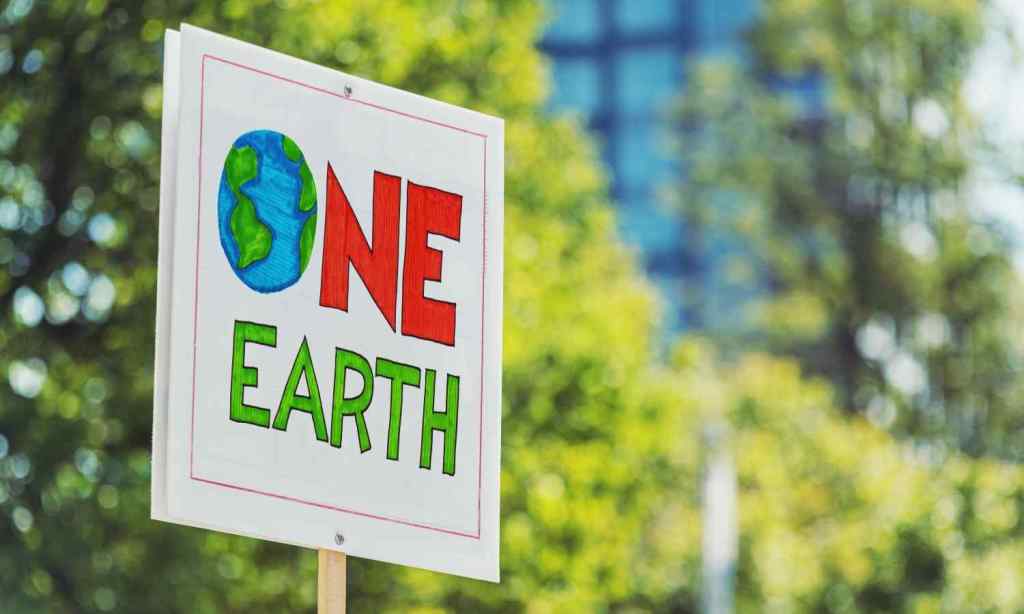The Latch has partnered with Suncorp Bank to deliver the sustainability content you need when figuring out what you can do to drive real climate action.
It’s sadly not unfamiliar to wake up to notifications and news cycles of bushfires and floods interspersed with cute puppy videos. Yet, the nagging feeling of the world’s potential catastrophes doesn’t leave us after each swipe.
Climate anxiety is real, so The Latch decided to speak to three experts on the topic. They include Britt Wray, a Ph.D. fellow who is researching the mental health effects of climate change, Rucha Lele, a psychologist at digital mental health company Lysn, and Dorcas Tang, an environmental advocate and artist. Here, they share their views on climate anxiety as well as suggestions for how to care for ourselves and turn dread into a direction.
Climate anxiety may vary in severity from person to person. Rucha explains that you could feel a range of emotions like sadness, hopelessness, frustration, overwhelm, nervousness, or fear about the future at any given moment. In response to such feelings around climate anxiety, your body may also reflect your anxiety, and you may experience difficulty sleeping, relaxing, increased tension in muscles, and loss of appetite.
Related: How Green Spaces Can Contribute to Climate Action
Related: Two OzHarvest Volunteers Share Exactly What It’s Like to Use Your Time to Fight Food Waste
This phenomenon is relatively new and not yet defined in the Diagnostic and Statistical Manual of Mental Disorders. However, Britt emphasises that ‘climate anxiety’ or ‘eco-anxiety’ is normal. “It should not be dismissed as catastrophising or overreacting. It’s a healthy response to an existential threat. Nor is action a cure in itself,” Britt said.
Anyone can be impacted by climate anxiety, but the younger generations are most affected by this. A hallmark study by The Lancet undertaken by a group of psychologists, environmental scientists, and psychiatrists surveyed 10,000 individuals and revealed 50 percent of 16 to 25-year-olds feel that humanity is doomed. This group believed that they won’t have access to the same opportunities their parents did and that the things they value most in life will be destroyed.
Yet, it is these teenagers and soon-to-be young adults who put themselves at the forefront of climate action and experience its devastating effects. How do we alchemise pain and anxiety into collective purpose?
Dig Deeper — Find Community
Caring about climate change can feel incredibly crippling if you are only consuming social media feeds about the crisis. Take some time to find like-minded individuals you can speak and interact with. Rucha suggests asking or bouncing your questions with people in the community, so you feel less stuck and alone.
Perhaps, you could volunteer for environmental action. Be open to people from all walks of life. Dorcas suggested that “talking with others in the community, who may or may not also be doing climate work, is key to being grounded and staying reminded that you are not alone.”
The internet, though a very crowded and noisy place, is also a sanctuary for free resources like All We Can Save.
Remind Yourself of the Beauty
The same planet that is engulfed with forest fires, floods, and typhoons is also the planet rich in biodiversity, natural wonders, and stunning landscapes. It is the paradoxical truth of climate change. As an artist, Dorcas reflects that learning about the richness Earth offers can be healing as opposed to always learning about different issues and how we can solve them, which is equally important, but can be massively draining.

Rucha emphasises that it’s equally important to take care of ourselves by sleeping, eating well, and taking time off work to visit green spaces. Maintaining a healthy lifestyle will help us to pay attention to the everyday beauty of life. This is one simple way to re-accustom ourselves to the world we live in and the world we want to fight for.
You’re Not Alone — Collective Action
Everyone’s contribution to climate action looks different.
Rucha encourages educating yourself on your role and responsibility, and how you can start making small changes to your lifestyle, through reusable cutlery or reducing private transport.

Free yourself from feeling guilt or shame, and comparisons to other levels of activism. No one person’s activism is singular, better, or perfect. Climate action is made up of a group of people who work continuously and collaboratively.
Climate anxiety is indicative of the care and responsibility you feel for the world you live in. Take time to sit through and comprehend those feelings. If these feelings are repetitively getting in the way of your everyday tasks and relationships, seek out professional assistance. There is no shame in asking for help before you can help the world.
Read more stories from The Latch and subscribe to our email newsletter.







